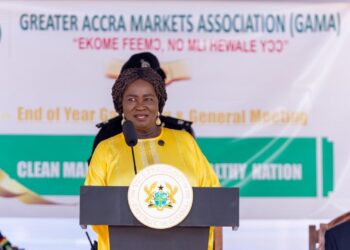Joe Jackson, CEO of Dalex Finance, has called on the incoming government to prioritize the recovery of misappropriated funds and tackle corruption head-on as part of efforts to address Ghana’s economic challenges.
Speaking on ABC News GH on Monday, December 16, Jackson emphasized the importance of accountability and efficient tax administration in boosting the country’s revenue.
“We have to attack corruption,” he stated. “In fact, one of the things we must do is to recover all the monies that have been looted or supposedly looted.”
Jackson also stressed the need to streamline and integrate Ghana’s tax systems, arguing that inefficiencies in tax collection are hampering revenue mobilization.
“One good thing the government can do is to put together the tax database,” he explained. “You see, you go to the port, you bring in ten containers, you pay some tax there, and then come and pay income tax. At the moment, there is no direct link. So you could be clearing one thing at one side and the other thing at the other side. When we bring them together, that will help improve our tax collection.”
He proposed linking all tax data systems—VAT, port duties, and income taxes—to ensure consistency and transparency in the country’s tax administration. He urged the incoming government to make a “huge effort” to collect more direct taxes, which he believes is critical for fiscal sustainability.
On Betting Taxes and Youth Welfare
Addressing the issue of taxing betting activities, Jackson expressed his disdain for the practice, describing it as harmful to Ghana’s youth.
“I very personally detest betting, and I think betting is a way of diverting the little income the youth have into different pockets,” he said.
“I absolutely have no problem taxing betting—even taxing it more—because betting is an addiction that is destroying the youth of this country. So anything that makes it less attractive is good.”
Jackson’s remarks come against the backdrop of President-elect John Mahama’s pledge to scrap certain taxes, including the E-levy, COVID Levy, a 10% levy on betting winnings, and the Emissions Levy.
These tax cuts, part of Mahama’s first 120-day social contract, aim to reduce economic hardship and improve the cost of doing business.
However, questions remain about the feasibility of these cuts given Ghana’s ongoing revenue challenges.
The E-levy alone generated GH₵1.19 billion in 2023, while the betting tax brought in GH₵15 million in just one month. With a tax-to-GDP ratio of 13.8%—still below the government’s target of 18-20% by 2027—Ghana’s fiscal deficit and rising debt remain pressing concerns.

































